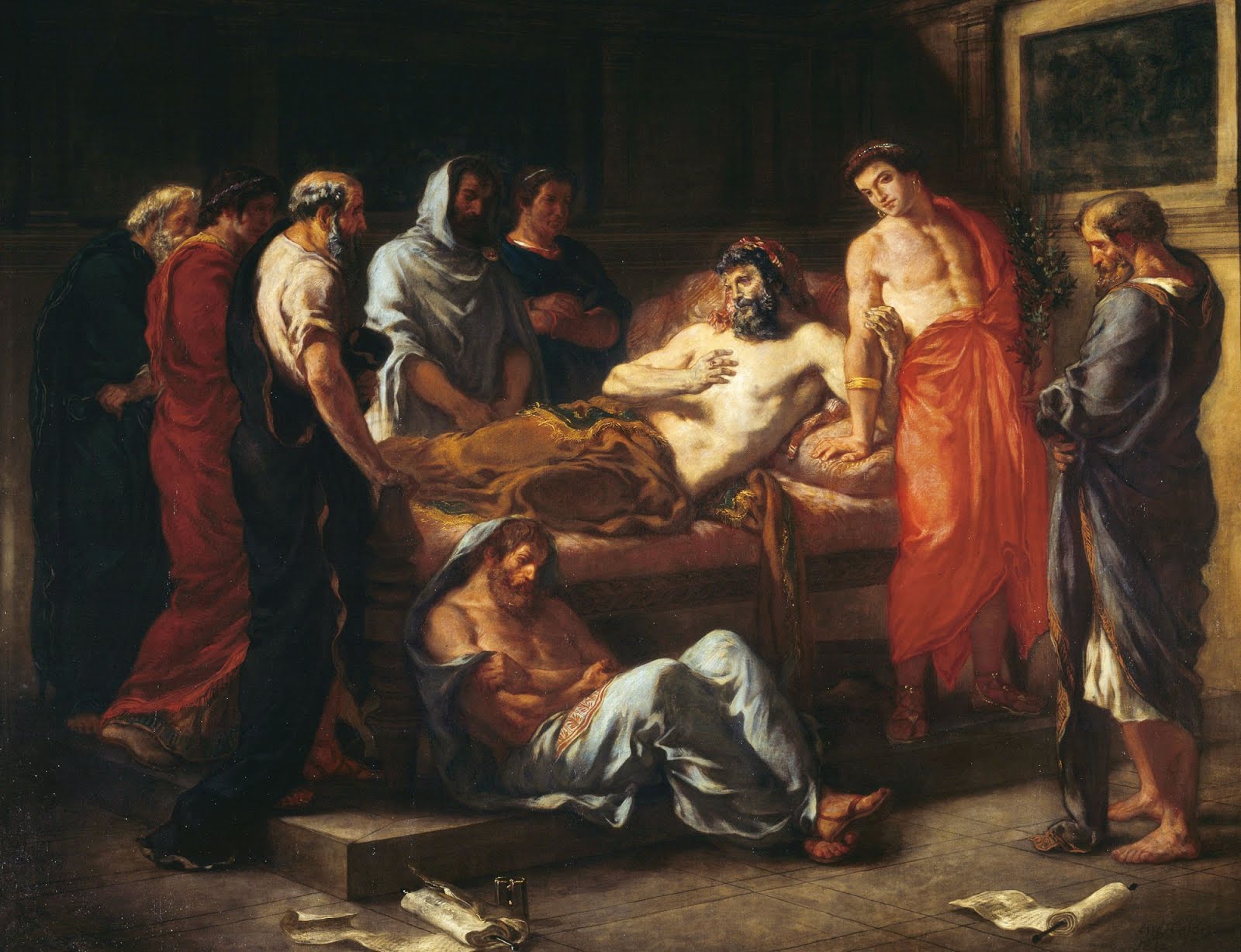They say that Diodorus, the Epicurean
philosopher, who within these last few days put an end to his life with his own
hand, did not act according to the precepts of Epicurus, in cutting his throat.
Some choose to regard this act as the
result of madness, others of recklessness. He, meanwhile, happy and filled with
the consciousness of his own goodness, has borne testimony to himself by his
manner of departing from life, has commended the repose of a life spent at
anchor in a safe harbor, and has said what you do not like to hear, because you
too ought to do it.
"I've lived, I've run the race
which Fortune set me.". . .
—Seneca
the Younger, On the happy life,
Chapter 19 (tr Stewart)
The issue
of suicide was clearly as important and divisive for the Ancients as it is for
us Moderns. Seneca himself ended up taking his own life, having been ordered to
do so by Emperor Nero, who believed that Seneca had been involved in an
assassination plot. Socrates, of course, at the order of the Athenians, drank
the hemlock.
The
question is not whether we will die, because it is in our nature to be mortal,
or even when we will die, because how well we live surely takes precedence over
how long we live. I suggest that what matters more is how and why we die, or
when it might be right to sacrifice our lives, or allow our lives to end, or
even to hasten that end.
The most
helpful Stoic guidance for me comes from Musonius Rufus, when he offers this
measure:
One
who by living is of use to many has not the right to choose to die, unless
by dying he may be of use to more. (Fragment 29)
I learned long ago never to be
dismissive of those who consider taking their own lives, or conversely never to
romanticize such an act. I have known a good number of people who have
attempted it, and some who have succeeded, and there were a number of times
many years ago when, tormented by the pain of the Black Dog, I stood there
right at the edge myself.
I know that every life is worth
living, and I understand that my own good is in the merit of my actions, not in
some balance sheet of pleasure and pain. At the same time, I can consider how
someone is feeling and thinking when he is faced with the prospect of jumping
from a burning building.
I remind myself that I should never
want to die, to cease to exist simply for its own sake, but that I should be
gladly willing to suffer death if I must do so to have lived with virtue.
It is my judgment and intention about my circumstances that will make all the difference between courage
and cowardice.
I know
nothing about the specific case of Diodorus, and so I can hardly judge it, but
whether what he did was right or wrong, I think I see what Seneca admires in
him. He knew above all else that he had done what life had asked him to do, and
he was willing to embrace his own end in good conscience and on his own terms.
I am
hardly an old man, but I learned recently that I was suffering from heart
failure. I decided I would refuse certain treatments where I judged the burden or
harm to be completely out of proportion to any benefits, and I asked that I not
be resuscitated if and when my heart stopped beating. Some people I knew were
horrified by this, and assumed I was giving up. Others nodded quietly in
comprehension.
I will not
choose to hasten my end, but I will not vainly resist it either. Such an
attitude is only possible for me because I remain convinced that I should
always choose quality over quantity.
Written in 10/2016
Image: Peter Paul Rubens, The Dying Seneca (1613)













